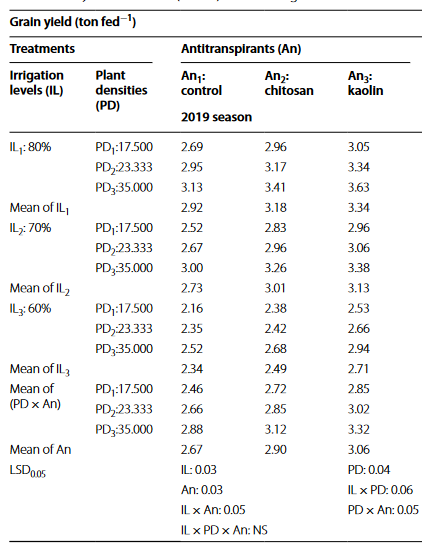I am attempting to perform a basic meta-analysis using crop yield response rates, and to do that I need both mean outcomes under treatment vs. control and their respective standard errors. While most papers report std errors (or std dev), some only report least significant differences. For example, the paper below reports only the LSD (.05) for IL (irrigation treatments), An(All anti-transpirant treatments) etc.
I found a paper (Hall, J.W., 1997. The presentation of statistical results in journal articles. Canadian journal of plant science, 77(1), pp.11-14.) states that LSD is approximately 3x the standard error. It doesn't state whether that is LSD 05 (although I assume it is.)
Is a "3x rule" a valid rule of thumb for estimating the standard error from the LSD given the type of ANOVA data reported here? (sample size for each result is 3 replicates - which is standard in this kind of study).
I need an estimate of the std error for the ILx/PD3/An1 means and the ILx/PD3/An2 means. Since the IL and IL x AN treatments have different LSD's, do I just use an average of the std errors or attempt to weight them in some way?
(I know it's possible to use other methods to impute std errors for a meta-analysis like using study averages or using std errors from similar studies - but since LSD was reported, I thought I would ask. I've also asked the authors for raw data, but so far no responses.)

